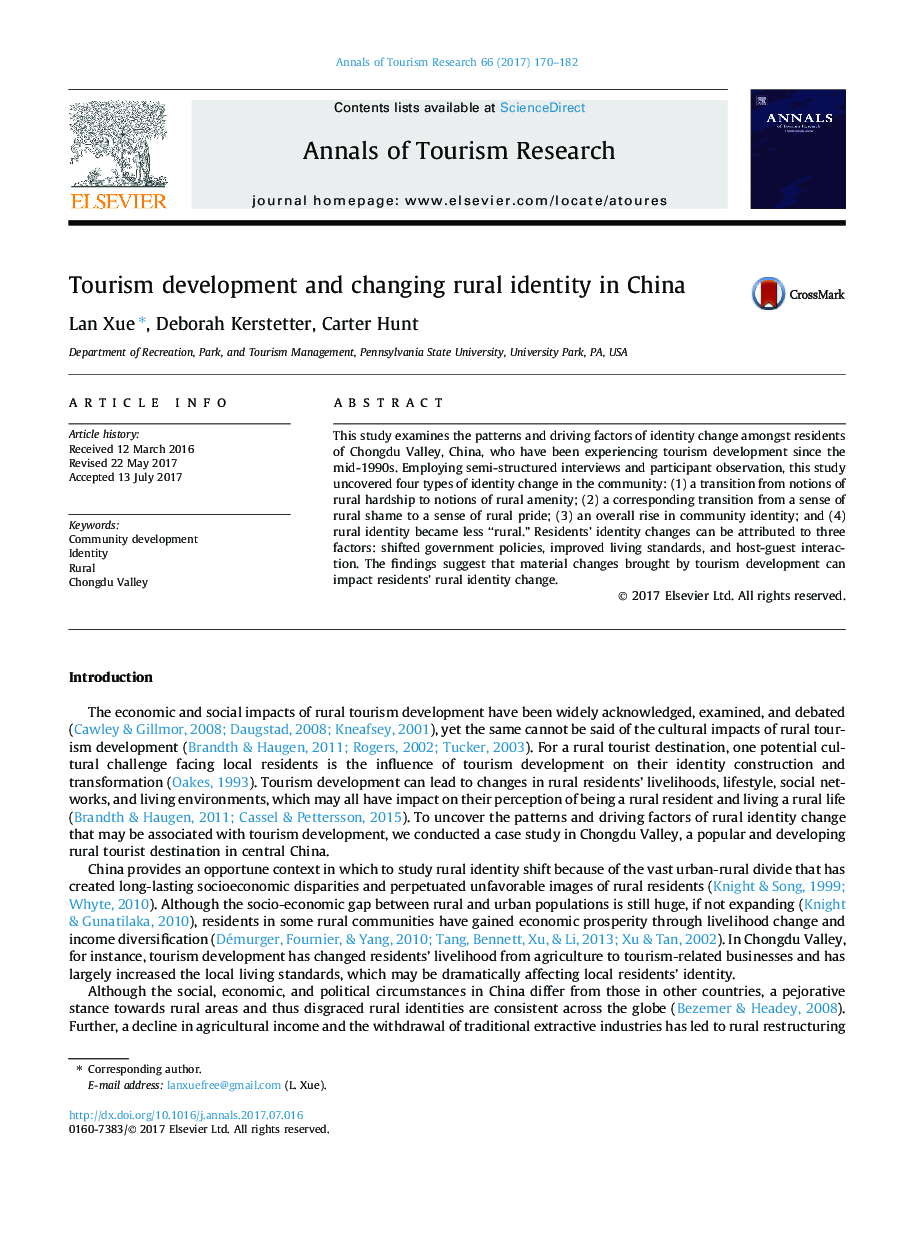| Article ID | Journal | Published Year | Pages | File Type |
|---|---|---|---|---|
| 5107892 | Annals of Tourism Research | 2017 | 13 Pages |
Abstract
This study examines the patterns and driving factors of identity change amongst residents of Chongdu Valley, China, who have been experiencing tourism development since the mid-1990s. Employing semi-structured interviews and participant observation, this study uncovered four types of identity change in the community: (1) a transition from notions of rural hardship to notions of rural amenity; (2) a corresponding transition from a sense of rural shame to a sense of rural pride; (3) an overall rise in community identity; and (4) rural identity became less “rural.” Residents' identity changes can be attributed to three factors: shifted government policies, improved living standards, and host-guest interaction. The findings suggest that material changes brought by tourism development can impact residents' rural identity change.
Keywords
Related Topics
Social Sciences and Humanities
Business, Management and Accounting
Tourism, Leisure and Hospitality Management
Authors
Lan Xue, Deborah Kerstetter, Carter Hunt,
